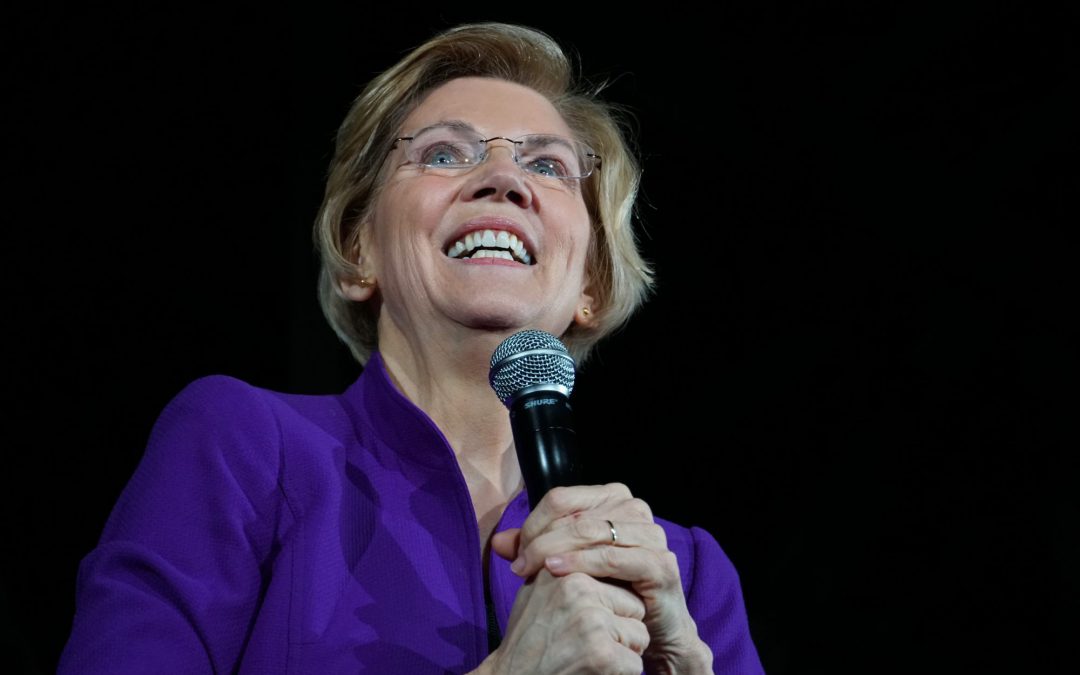WASHINGTON — The six senators are running for the 2020 Democratic nomination for president are on the campaign trail railing against big corporations in Brooklyn and pumping iron in Iowa, but they also are creating legislative records in the Senate that often will bolster their campaign credibility.
Political expert Mark Schmitt, director of the Political Reform program at the liberal think tank New America, said there is value for candidates in building out campaign policy positions by introducing legislation in the Senate.
“It sounds like a seriousness and a commitment to an idea when you say, ‘I’ve written this up,’” he said.
The senators also can use the Congressional Budget Office to calculate the cost of their proposals, meaning they can cite a specific price and a detailed plan for how to offset when they are campaigning.
“But the important thing,” Schmitt noted, “is getting it into the public debate.”
In a Republican-held Senate, most of the 2020 Democratic hopeful’s bills are unlikely to get much attention. Still, the group has introduced 92 bills so far in this Congress, with Minnesota Sen. Amy Klobuchar leading the pack at 39 and New Jersey Sen. Cory Booker trailing at five.
Schmitt said introducing certain pieces of legislation, such as Sen. Elizabeth Warren’s, D-Mass., detailed policies on affordable housing and refinancing student loans, is a way to distinguish themselves in a jam-packed field of 14 Democratic candidates so far.
“Elizabeth Warren is … almost saying, ‘I’m not all glitz, I am the person who puts out detailed policies,’” he said, while voters may see Beto O’Rourke as “all charisma, no policies.”
For Klobuchar, introducing a high volume of less flashy bills is a way to portray herself as the “get stuff done” candidate who works across the aisle, according to Schmitt.
Klobuchar’s legislation directing states to investigate increasing their child care programs — as opposed to Warren’s plan for federally funded child care — was supported by Sen. Dan Sullivan, D-Alaska. Her bill to allow for the temporary importation of prescription drugs in the case of a shortage was co-sponsored by two Republicans, Sen. Chuck Grassley of Iowa and Sen. Mike Lee of Utah.
Sen. Bernie Sanders, I-Vt., on the other hand, has introduced three sweeping bills intended to lower the cost of prescription drugs. None were co-sponsored by Republicans.
None of Sanders’ or Klobuchar’s legislation focuses on particular groups like women or racial minorities, a different approach than other 2020 hopefuls in the Senate.
“There are a lot of people of all races and identities who think that programs that are universal … will just have more appeal than things that are nuanced and only target particular situation,” Schmitt said. “That’s kind of the lane that Bernie is in. The sort of ‘universalist’ lane.”
Booker, New York Sen. Kirsten Gillibrand, Warren and California Sen. Kamala Harris have each introduced legislation that targets specific issues faced by women, African-Americans or Native Americans.
Gillibrand’s legislation focuses on lowering the high rate of maternal mortality in the U.S. The Senate passed a bill co-sponsored by Booker and Harris that would make lynching a federal crime in the U.S.
Legislation targeting minority issues and the diversity of the candidates could help to secure a key goal of Democratic primaries: connecting with African-American voters, who make up 24.1 percent of the Democratic primary electorate, according to the Brookings Institution’s Primary Project.
The Senate can also be a place for 2020 candidates to rehabilitate their images in a party that has moved to the left, according to Schmitt.
“Everybody’s going to have a little bit of baggage, given how far the bar has moved,” he said.
Booker has faced criticism for using charter schools in his education reform as mayor of Newark using charter schools. Schmitt said those policies are not popular in the Democratic party, but his criminal justice legislation can help him regain progressive credentials. Booker introduced the Marijuana Justice Act in late February, which would legalize marijuana at a federal level and aim to compensate African-American communities for what is largely seen as discriminatory effects of the tough drug policies of the 1990s.
Schmitt said what the Democratic senators have in common is Senate Majority Leader Mitch McConnell’s power to schedule votes in a way that makes 2020 candidates lives’ difficult. With no Republican senators currently running for president, the majority leader has wide latitude to schedule important votes on important 2020 campaign dates.
“A vote on the Saturday before the Iowa caucus? Critical vote? Sure. [McConnell] wouldn’t hesitate to do that,” Schmitt said. “The limit is the limit of his imagination.”


